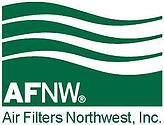How long has it been since you gave your HVAC air filter a thought? If you’re like the majority of folks, it’s probably out of sight, out of mind. But that tiny filter is going the extra mile to keep the air in your home clean and your HVAC running efficiently. Not paying attention could result in compromised air quality, increased energy consumption, and even expensive repairs down the road.
Consider it: your air filter catches dust, pollen, pet dander, and even mold spores—things you definitely don’t want floating around in your house. When it becomes clogged (and it will get clogged), your HVAC system has to work harder, increasing energy bills and reducing its lifespan. The silver lining? Frequent air filter replacement is one of the simplest and most affordable methods to keep your body, your bank account, and your HVAC system safe.
We’ll discuss indications you should replace the air filter, describe the ideal air filter change interval, define how frequently to replace the air filter, and provide home air filter replacement tips. Along the way, you’ll get to see real numbers, such as possible 5–15% energy savings, and receive friendly, no-nonsense guidance on keeping your system operating efficiently.
Why Regular Air Filter Replacement Matters
Your air filter for your HVAC system is not just a mesh screen—it’s the front line of defense against indoor air pollution. The EPA says that indoor air can be 2 to 5 times more contaminated than outdoor air, with dust, allergens, and even volatile organic compounds (VOCs) from household cleaning products. A clean filter catches these particles, but a dirty one? It’s like trying to breathe through a clogged straw. When your HVAC air filter needs to be replaced, dust accumulates, airflow diminishes, and your system struggles to keep up:
- Energy Savings: A clean filter can lower energy consumption by 5–15%, according to the U.S. Department of Energy.
- System Longevity: Reduced airflow forces your blower to work harder, accelerating wear and raising repair costs.
- Air Quality & Health: Filters trap dust, pollen, and mold spores—neglect them and you risk more indoor allergens and respiratory irritation.
Signs You Need to Change the Air Filter
Even without a calendar reminder, your home will give you cues that it’s time for an air filter change:
- Reduced Airflow at vents—your system struggles to push air through a clogged filter.
- Dust Buildup around registers and furniture—even after cleaning, dust returns faster.
- Rising Allergy or Asthma Symptoms—more sneezing, coughing, or breathing discomfort indoors.
- Higher Energy Bills without other changes—your HVAC is working overtime to maintain the temperature.
Benefits of Regular Air Filter Replacement
Committing to the right air filter change schedule delivers big wins:
1. Enhanced Indoor Air Quality
Fresh filters catch as much as 99% of airborne irritants, keeping allergens low and overall comfort high. For allergy victims, this translates to fewer sneezes, itchy eyes, and restless nights.
2. Lower Energy Costs
A clogged filter limits airflow, so your HVAC system has to work longer to warm or cool your house. Regular replacement can reduce energy consumption by 5-15%, saving you hundreds annually.
3. Extended Equipment Life
Less stress translates into fewer failures, and your furnace and AC will last years longer before needing extensive work.
How Often to Change the Air Filter
How often to change the air filter depends on several factors:
- Manufacturer Recommendations: Most filters should be changed every 60–90 days.
- Filter Type & Thickness: Thicker pleated filters often last 6–12 months, while basic 1-inch fiberglass filters may need changing every 3 months.
- Household Conditions: Homes with pets, smokers, or allergy sufferers may require filter changes every 30–60 days.
- Seasonal Usage: HVAC systems run hardest in peak summer and winter; check filters monthly during these times and replace as needed.
Home Air Filter Replacement Best Practices
Making home air filter replacement quick and painless:
- Mark Your Calendar: Set reminders for a filter check every month.
- Keep Extras on Hand: Stock up on the correct filter size so you never delay replacement.
- Inspect Before Installing: Hold the filter up to light—if you see little or no light, it’s time to swap it out.
- Follow Installation Direction: Most filters have arrows showing airflow direction—install correctly to ensure proper filtration.
- Recycle When Possible: Some manufacturers and local programs accept used filters for recycling to reduce waste.
Conclusion
Changing your air filter might seem like a minor chore, but the impact is huge. Think of it like changing the oil in your car—skip it, and you’ll pay the price later. But stay on top of it, and you’ll enjoy cleaner air, lower bills, and a happier HVAC system.
At Air Filters Northwest (AFNW®), we’ve witnessed ourselves how replacing air filters consistently can revolutionize indoor air quality and cost homeowners thousands in unnecessary repairs. If you’re in need of assistance selecting the proper filter, coordinating replacements, or addressing emergency replacements (such as during wildfire season), we’re here to make it simple.
Ready to breathe a little easier and save some cash? Check your filter today—and if it is dirty, call us at (503) 968-3261 for fast, reliable replacements. Your lungs (and your wallet) will appreciate it!
